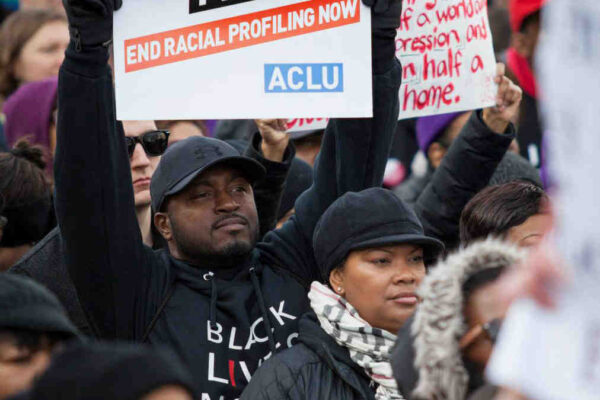Four years ago today, an unarmed Black teen named Michael Brown was killed by a White police officer while walking in Ferguson.
The 18-year-old’s death would catalyze a movement.
In the immediate aftermath of the shooting, the predominately white local and county police responded to the largely peaceful protests in Ferguson’s African-American community with a show of force that left Americans wondering whether they were watching events unfold on the streets of suburban St. Louis or on the streets of an authoritarian country.
Several months later, the 28-year-old officer who shot Brown, Darren Wilson, received a non-indictment from a St. Louis County grand jury. The people took to the streets again, only to be met with more excessive force from law enforcement.
The images from Ferguson helped the #BlackLivesMatter movement gain traction nationwide – because the nation soon realized – collectively -- there were places like Ferguson everywhere. For the first time in recent history, mainstream (White) America finally began to see what communities of color have known for generations: one day you might be killed while walking down the street. And, often, there will be no consequences.
The bias within our policing and criminal justice systems are a constant threat to the everyday survival of people of color. Brown’s death and Wilson’s non-indictment ignited a national conversation surrounding how we talk about race and policing in the United States.
Law enforcement officers and officials are public servants tasked with serving and protecting their communities, not erecting a blue wall of silence to insulate themselves from transparency and accountability.
There’s nothing we can do to bring Brown back – or the other unarmed Black men like him who died at the hands of police. Instead of calling for more thoughts and prayers, we must pursue policy change in policing. We must not continue to live in a world where the shooting of an unarmed Black man by police happens with the frequency we see today.
We still have work to do.
When it comes to Missouri’s laws about racial profiling by police, we must make real policy change. To serve and protect is not a suggestion. It is a mandate that law enforcement must apply equally to all communities.
There is undoubtedly a racial problem in Missouri. Every year since 2000, Missouri has collected the data that shows how much racial injustice black drivers in our state experience. African-American drivers were stopped at a rate 85 percent higher than whites in 2017, despite the fact that blacks and Hispanics are less likely than whites to have contraband.
Since Brown’s death, we have been working to reform this racial profiling law in the Missouri Legislature. We won’t stop until we win.
It’s also why we keep pushing for criminal justice reform from police officers to the prosecutors.
Prosecutors have the power to transform justice in their communities. Their decisions are a major driver of mass incarceration and racial disparities, like the ones we see in Brown’s St. Louis County, where Blacks are only 24 percent of St. Louis County’s population, but make up 67 percent of the jail population.
Brown grew up in a community where people were targeted by the criminal justice system.
Before Brown’s death, municipalities in North St. Louis County were notorious for profiting off the backs of the poor by arresting, ticketing and imprisoning people for fines and fees collected by their municipal courts.
A community's prosecuting attorney holds immense power at each stage of criminal proceedings — from charging decisions to the sentences they seek.
This summer, we launched a voter education campaign in the St. Louis County prosecuting attorney race to let voters know they have the power to elect officials who will hold police accountable, end racial disparities in our criminal justice system, and ensure that justice means justice no matter the size of your bank account. (It’s part of our broader efforts to educate voters across the state about their PA.)
Voters noticed.
For the first time in nearly a generation, the prosecuting attorney candidates engaged in a county-wide discussion about the high numbers of people in the St. Louis County Jail and the office’s use of cash bail, diversion, and the alternative courts system – the things that most affected Brown’s community. This week, voters made it clear that the criminal justice system must change when they elected challenger Wesley Bell, who defeated the 28-year incumbent, Bob McCulloch.
These are just a couple of ways in which we’re committed to remembering Brown. His family will lead a rally near where he was shot at the Canfield Green Apartments on Aug. 9 and we will be there to show support. We must all do our part to honor his legacy and remember that Black Lives Matter.
We must speak out about the injustices we see. We must continue to remember that the racial injustices we saw in Ferguson are everywhere. We must fight on.

